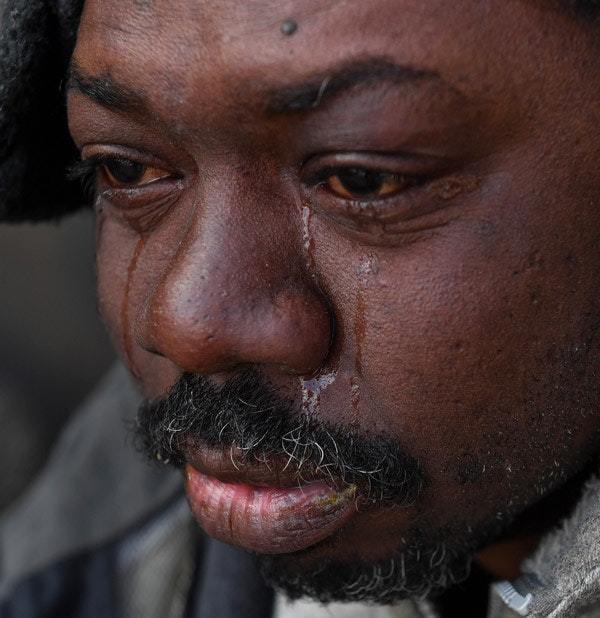Engaging Individuals and Changing Systems
From adopting policies that address systemic issues to individuals focused on their corner of the world, combating poverty takes a collective effort.

The Catalyst asked a variety of people on the front lines of fighting poverty or addressing its causes for a quick take on these questions:
What is the greatest barrier to struggling Americans attempting to make it out of poverty? And what might be done to overcome that barrier?

Christopher Fay
Executive Director, Homestretch, Falls Church, Virginia
“We must use our power to change unfair systems, promote equal opportunity, and redress the effects of unjust histories. And if we believe in each individual’s worth and capacity, we will structure our social service models to promote individual achievement and responsibility.“
Read full article
 James Bernard sheds tears as he explains that no one has helped him or his partner as they lived outdoors in frigid Washington, D.C. in January 2019. (Ricky Carioti/The Washington Post/Getty Images)
James Bernard sheds tears as he explains that no one has helped him or his partner as they lived outdoors in frigid Washington, D.C. in January 2019. (Ricky Carioti/The Washington Post/Getty Images)

Ana Lopez Van Balen
Presidential Leadership Scholar; Affordable Housing Preservation Officer, District of Columbia’s Department of Housing and Community Development
“Policymakers, financial institutions, and other stakeholders can enhance the chances of creating opportunity for vulnerable families when they deliberately involve those families and their communities in making decisions, policies, and programs that affect their lives.”
Read full article

Nicol Turner-Lee
Fellow, Brookings Institution’s Center for Technology Innovation; Author, Digitally Invisible: How the Internet is Creating the New Underclass (Forthcoming in 2019)
“Achieving equitable digital access must be at the forefront of policy discussions to offset the unintended outcomes of automation, the use of big data, and the burgeoning app economy.”
Read full article

Rodney Adams
Executive Director, Munger Place United Methodist Church, Dallas
“The most effective antidote to homelessness and severe poverty that we have observed is when people risk their free time and emotional bandwidth to form real relationships with those in need.”
Read full article

Dan Hooper
Executive Director, ScholarShot, Dallas; Author, Fleece U – How American Universities are Robbing our Kids and Our Future (Forthcoming in 2019)
“We are over-matching kids from poverty, many of whom are the first in their families to attend college, by sending them to schools without enough systems in place to help them earn a degree.”
Read full article

Larry James
CEO, CitySquare, Dallas, Texas
“We need new, just policies and funding to address this unsustainable situation, which stacks the deck against low-income persons and families.”
Read full article
